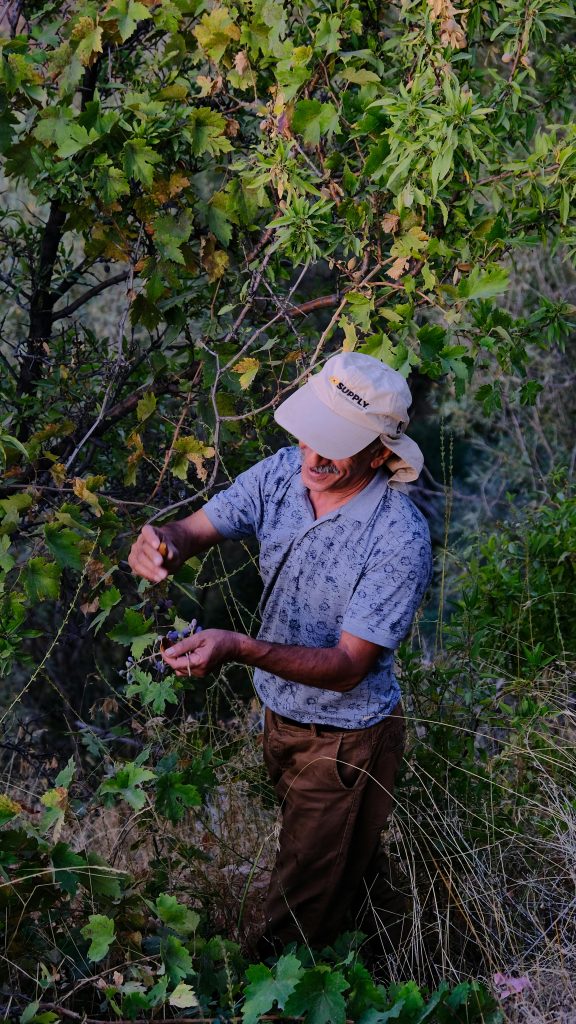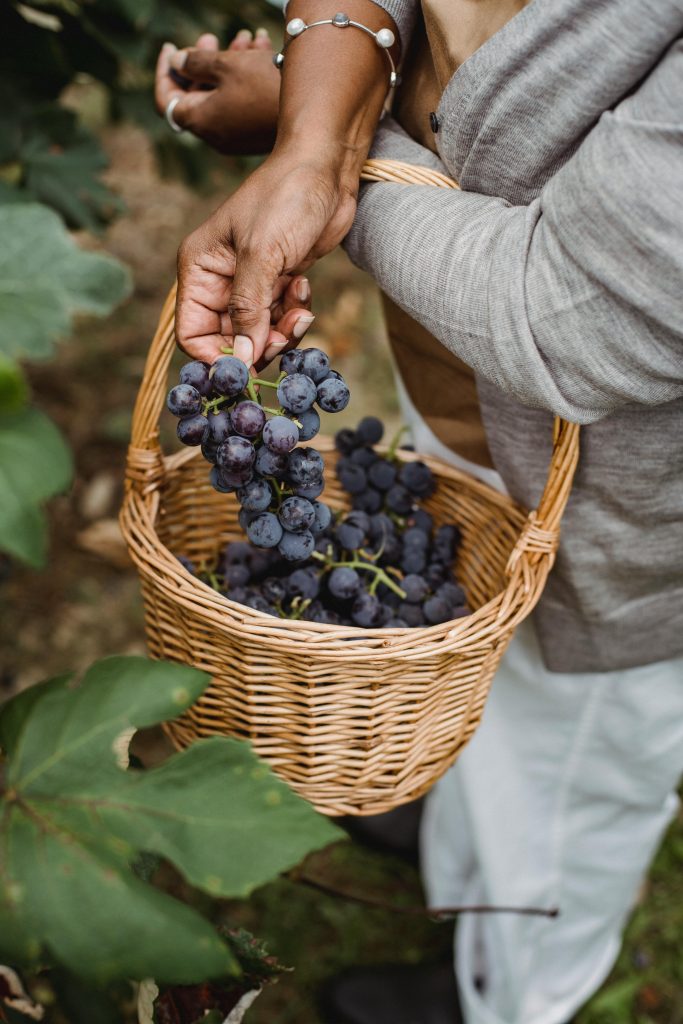
Imagine drinking your own homemade wine, knowing it came from vines just outside your back door. Sounds dreamy, right? But what if you don’t have sprawling acres of land? The good news is, you don’t need it! Let’s look into some backyard vineyard ideas. Even the smallest backyard—or no yard at all—can host a mini vineyard. In fact, here in Portugal, it’s a common tradition. Nearly everyone knows someone who grows grapes, even if it’s just a handful of vines draped over a terrace. Let’s see how you can do the same, no matter where you live or how much space you have.
Backyard Vineyard Ideas: Inspiration from Portugal
Portugal is a country that lives and breathes wine. From the rolling hills of Douro Valley to backyard terraces in Lisbon, grapes grow everywhere. In our family, my husband’s uncle is the perfect example of how simple it can be. He has a terrace covered with vines that not only provide shade in the summer but also give him a small harvest every autumn.
He doesn’t have fancy equipment or acres of land. Just a dedicated room in his old house where he ferments and stores his homemade wine—a setup you’ll find in many traditional Portuguese homes. It’s practical, resourceful, and, honestly, pretty inspiring. If he can do it with a rooftop and a little know-how, so can you!

Step One: Choose the Right Grapes for Your Space
Before you rush out to buy grapevines, think about what you want to achieve. Are you after a few bottles of wine each year? Or do you just want a charming green canopy with the occasional grape snack?
Here are some grape varieties perfect for small spaces:
- Concord Grapes: Great for beginners and suitable for both fresh eating and winemaking.
- Pinot Noir or Chardonnay: Ideal for wine lovers, especially if you’re after a classic taste.
- Isabella Grapes: A versatile option that thrives in small gardens and cooler climates.
- Dwarf Varieties: Specially bred for pots and tiny gardens.
When space is tight, choosing disease-resistant varieties is key. They’ll save you the headache of managing pests and diseases in a small area.
Step Two: Think Vertical
Small spaces call for creative solutions. One of the best ways to maximize limited space is to grow vertically. Grape vines are natural climbers, so give them something to climb on:
- Pergolas or Arbors: Not only practical but also beautiful. Imagine sitting under a canopy of vines while sipping a glass of wine!
- Trellises: A simple wooden or metal frame works wonders for keeping vines organized and off the ground.
- Fences or Walls: If you’ve already got a fence or wall, let the vines climb them. Bonus: they’ll double as insulation or shade.
Pro Tip: If you’re working with a tiny balcony or terrace, grow your vines in pots. Use sturdy stakes or attach wires to guide the vines upwards.
Step Three: Care and Maintenance
Grapes might seem fancy, but they’re surprisingly low-maintenance once you get the hang of it. Here are a few tips to keep your vines happy:
- Prune Ruthlessly: Grapes need regular pruning to thrive. This keeps them productive and prevents them from becoming a tangled mess.
- Water Wisely: Grapes don’t like wet feet, so let the soil dry out a bit between waterings. Pots will need more frequent watering than in-ground vines.
- Sunshine is Key: Grapes love the sun, so pick the sunniest spot in your backyard or balcony.
- Fertilize Sparingly: Too much fertilizer leads to more leaves than grapes. A light application in spring is plenty.

From Vine to Wine: What You’ll Need
Here’s where the magic happens—turning those grapes into your own homemade wine! If you’re like my husband’s uncle, you don’t need a state-of-the-art winery. A small, dedicated space in your home is enough.
Basic Equipment for Small-Scale Winemaking
- A Primary Fermenter: This could be a clean plastic bucket with a lid.
- Airlocks: To let gases escape during fermentation without letting air in.
- A Hydrometer: To measure sugar levels and track fermentation progress.
- Bottles and Corks: For storing your finished wine.
- A Press (Optional): If you’re working with a larger harvest.
For detailed insights into how many grapes you’ll need, check out my article on How Many Grapes Do You Need to Make a Bottle of Wine?.
Common Challenges (and How to Overcome Them)
Pests and Diseases
Small spaces can make it harder to spot issues. Check your vines weekly and act fast if you see any signs of trouble. For an extra layer of knowledge, dive into the world of Anthocyanins and learn how these powerful compounds protect grapes and give them their vibrant color.
Why a Backyard Vineyard is Worth It
There’s something magical about watching grapes grow, ripen, and turn into wine. Even if your harvest only makes a bottle or two, it’s an experience worth having. Plus, vines add beauty to your outdoor space, provide shade, and can even boost your property value.
And if you’re in Portugal—or anywhere with a strong wine culture—growing your own grapes connects you to a centuries-old tradition. Who knows? Maybe you’ll inspire the next generation, just like my husband’s uncle did for us.
Final Thoughts: Start Small, Dream Big
Backyard vineyard ideas aren’t about how much land you have. It’s about the joy of creating something special in whatever space you call home. Whether you have a tiny terrace or a compact backyard, your mini vineyard can thrive with a little planning and a lot of love.
So, what are you waiting for? Plant a vine, set up a trellis, and start your backyard vineyard journey today. Who knows? You might be sharing your homemade wine with friends before you know it.
[…] you’re still planning your vineyard, you might enjoy this article: Backyard Vineyard Ideas for Small Spaces: Make Every Grape Count. It’s packed with tips for maximizing space and making your vineyard dream a […]